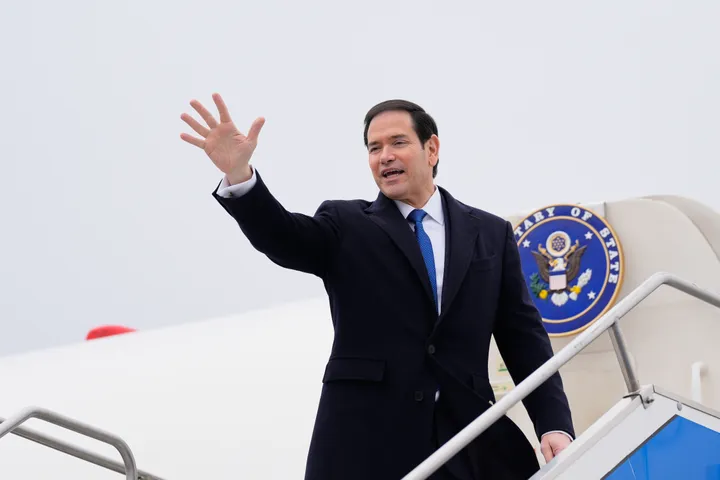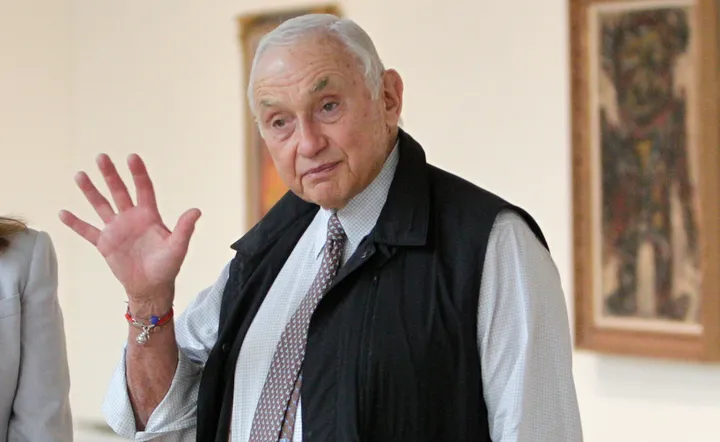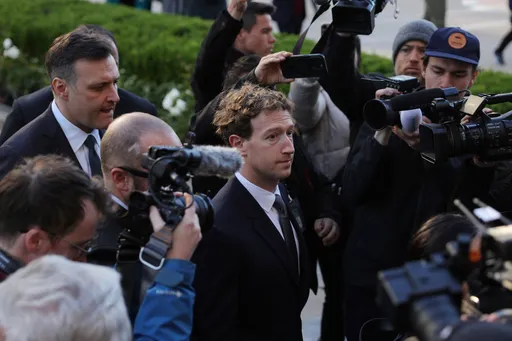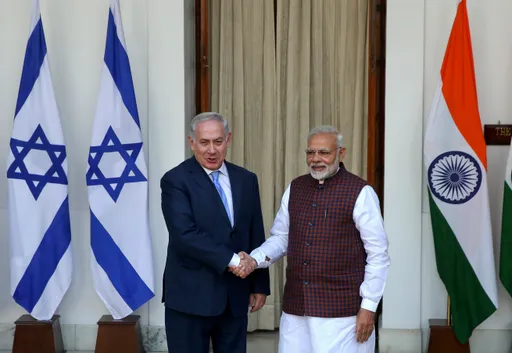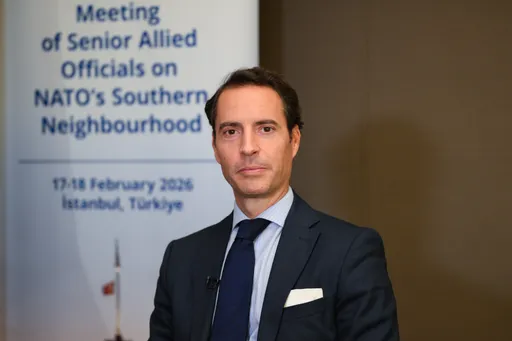While watching Rita Ora’s "BIG" music video for the first time this past spring, the brutalist architecture in the background struck me as familiar. It's no surprise why: it was filmed near my hometown of Sofia, Bulgaria. Another pop star, Dua Lipa, also chose Bulgaria to shoot the video for her song, "Break My Heart." However, the two singers' interest in the Balkans is not marketing-driven; they both are of Albanian descent and often refer to their Kosovar roots.
Kosovo usually only appears in the headlines when there are tensions with Serbia. Just a month ago, both countries were on the brink of a new war. However, thanks to London’s Kosovar pop princesses, there is more positive news related to Kosovo.
“Kosovo will always be our homeland, and we will forever be proud Kosovans,” Rita Ora said in an interview with Vogue. Born in Kosovo to Albanian parents, her family moved to the United Kingdom when she was still a baby. Yet she never forgot her origins.
In 2018, Ora performed in Kosovo’s capital of Pristina for the 10th anniversary of that nation’s independence. She also filmed her video for “Shine Ya Light” there. Also, while working with UNICEF in 2015, then Kosovo President Atifete Jahjaga named her an honorary ambassador to Kosovo.
This year, both she and Lipa, congratulated Vjosa Osmani, Kosovo’s youngest president, on her election win. Unlike Ora, Lipa, the most streamed female artist on spotify, was born in London. However, she has Kosovar Albanian parents and is equally proud of her heritage. Oddly enough, in the 1960s, Lipa’ and Ora’s grandfathers had drinks in the then Yugoslavia.
In January, Lipa encouraged Kosovo citizens to vote in the parliamentary elections. Later, she shared social-media posts from President Vjosa Osmani marking the International Day of the Disappeared, which remembers the 1.600 people from the Kosovo War who are still missing. Similarly, Osmani celebrated Lipa on her Grammy win, commenting that she is an “inspiration for girls and women in Kosovo.” Lipa also did not forget Kosovo’s 13th year of independence. In an Instagram post she said she remembers “watching it happen on tv while living in Pristina.”
However, certain other social-media posts by Lipa on this topic angered some of her fans - especially her “autochthonous” tweet. In it, she shared a map that includes Albania, Kosovo, and parts of neighbouring countries. The result was that many people accused her of supporting Albanian expansion. The singer later called it a misinterpretation and said, “Whenever I post about Kosovo, my feed goes crazy, even if it’s about something as joyful as food and music.”
How would all that popularity affect Kosovo’s recognition?
Kosovo has long been struggling to gain international recognition as an independent state - with some success. Today, 97 of 193 United Nations members, plus the Olympics, Facebook, and Netflix recognise Kosovo’s independence.
Still, the lack of global consensus on the matter has left many feeling unfulfilled. As Thomas Lindemann, professor of Political Science at Artois University, points out, such lack of recognition creates ‘the feeling of … the negative difference between a claimed self-image and the image given to us by others.’
It is in these situations where messaging and diplomacy are critical. In 2011, the Kosovo government designed a plan to achieve full international recognition. One strategy was to boost its diplomatic presence abroad by establishing 32 embassies and 24 consulates.
Another key point was to put a positive spin on Kosovo’s independence. Most government bureaucrats at the time likely never predicted they’d have international pop superstars to aid in that endeavor, but that is how things unfolded. Today Lipa and Ora, whether they like it or not, are the most high-profile messengers on the subject of Kosovo independence.
Further hindering the cause of independence is that, on a global level, there are various definitions and concepts of recognition. One refers to the legal aspect - namely full recognition as a member of the international community. Kosovo is currently concentrating its efforts on that front.
Another recognition has more to do with cultural legacy. While some governments refuse to recognise Kosovo as a sovereign state, Dua Lipa talks about Kosovan heritage, and Ora says she is Kosovan at heart. Meanwhile, travel bloggers on YouTube promote Kosovo as the land of Dua Lipa and Rita Ora.
One small step for Apple, one giant leap for Kosovo
Last year, Lipa and Ora shared a petition on social media calling for Kosovo to be shown on Apple Maps as an independent country. Ultimately, the company did not redraw the borders; however, it put the country’s name on the map.
Earlier, in 2018, Dua and her father, Dukagjin Lipa, helped put together Kosovo’s first major music festival. Mr Lipa, also a musician, said they aim to show how exuberant Kosovo can be - a place where it is indeed possible to have a good time. To make it known beyond merely the conflicts in the region.
The platform Lipa and Ora enjoy as celebrities has the power to influence people’s perceptions. They do this by directing attention toward issues such as Kosovo independence, which normally would not be in the spotlight.
Also, as John Parmelee, Assistant Professor at the University of North Florida, points out, celebrities can influence and shape news media coverage thanks to social media. In the 2016 election campaign, Donald Trump’s supremacy over social media allowed him to shape the news agenda.
Another example is the so-called Oprah effect. In the 2008 Democratic Party presidential primaries, Oprah Winfrey supported Barack Obama’s campaign. An analysis shows that Winfrey’s support brought Obama between 420,000 and 1,600,000 new votes. This intervention helped Obama win the presidential primaries and then the presidential election.
In contrast, a US opinion poll shows that 89 per cent of participants answered negatively to whether celebrities can change their voting preferences. For instance, Taylor Swift’s endorsement of US Senate candidate Phil Bredesen in 2018 did not help democrats win in Tennessee, while it made her less popular with Donald Trump and his partisans.
However, the poll does not tell the entire story. 212,871 new voters were registered during that time, mainly in the 18 to 24 age group. Moreover, 69 percent of the same age group voted for Bredesen. In sum, celebrity involvement in politics may not be enough to change people’s existing opinions, but it still has the potential to change perspectives.
Henry Lyce, the co-founder of Time Inc, once said, “People do not care about the masses. Individuals are the exciting ones.” This is true in many regards. Indeed most people do not dwell on Kosovo’s diplomatic issues. However, international singers like Lipa and Ora, who define themselves as Kosovars, can consistently draw attention to the plight of their homeland.



